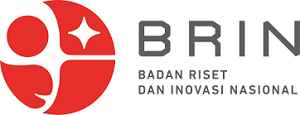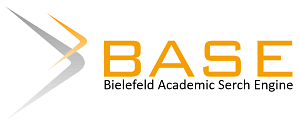Impact of the fuel mixture ratio of AVGAS 100LL and RON 92 fuel on combustion characteristics
DOI:
https://doi.org/10.55299/jostec.v5i1.478Keywords:
Bunsen burner, AVGAS 100 LL, Aviation gasoline, Cessna 172S, Lycoming engineAbstract
AVGAS 100LL is an aviation fuel used in piston engine aircraft, particularly in training aircraft such as the Cessna 172S with Lycoming engines. The use of lead in this fuel can have various health-related concerns. Therefore, reducing the use of leaded fuel has become a solution to address these issues. This study aimed to investigate the combustion characteristics of AVGAS fuels, including AVGAS 100%, AVGAS 75% + PERTAMAX 25%, and AVGAS 50% + PERTAMAX 50%. The research involved conducting combustion tests using a Bunsen burner. The results showed that the addition of PERTAMAX to AVGAS significantly influenced the temperature, color, flame height, and flame area produced. The temperature values were higher for AVGAS 100% compared to AVGAS mixed with PERTAMAX. On the other hand, the flame height and flame area were lower for AVGAS 100% compared to the blended fuels. These findings indicate that the addition of PERTAMAX affects the combustion characteristics of AVGAS fuels. Further studies are recommended to explore and expand our understanding of the effects of blending AVGAS with alternative fuels.
Downloads
References
Bhikuning, A., Hafnan, M., & Wijaya, J. D. I. (2022). PENGARUH PENCAMPURAN MINYAK TANAH DENGAN BAHAN BAKAR MINYAK DIESEL, BIODIESEL DAN LAINNYA - REVIEW. Jurnal Rekayasa Mesin, 13(3), 717–730. https://doi.org/10.21776/jrm.v13i3.1090
Bishop, G. J., & Elvers, B. (2021). Aviation Gasoline (Avgas)*. In Handbook of Fuels (pp. 529–531). Wiley. https://doi.org/10.1002/9783527813490.ch25
Cai, T., Tang, A., Zhao, D., Zhou, C., & Huang, Q. (2020). Flame dynamics and stability of premixed methane/air in micro-planar quartz combustors. Energy, 193, 116767. https://doi.org/10.1016/j.energy.2019.116767
Ershov, M. A., Klimov, N. A., Burov, N. O., Abdellatief, T. M. M., & Kapustin, V. M. (2021). Creation a novel promising technique for producing an unleaded aviation gasoline 100UL. Fuel, 284, 118928. https://doi.org/10.1016/j.fuel.2020.118928
Huda, A. A., Widodo, A. S., & Siswanto, E. (2019). PENGARUH LIP THICKNESS TURNCATED NOZZLE SUDUT LUAR TERHADAP KARAKTERISTIK API DIFUSI CONCENTRIC JET FLOW.
Hui, X., Kumar, K., Sung, C.-J., Edwards, T., & Gardner, D. (2012). Experimental studies on the combustion characteristics of alternative jet fuels. Fuel, 98, 176–182. https://doi.org/10.1016/j.fuel.2012.03.040
Hwang, B. J., Kang, S., Lee, H. J., & Min, S. (2020). Measurement of laminar burning velocity of high performance alternative aviation fuels. Fuel, 261, 116466. https://doi.org/10.1016/j.fuel.2019.116466
Karakoç, T. H., Colpan, C. O., & Şöhret, Y. (2018). Advances in Sustainable Aviation. In T. H. Karakoç, C. O. Colpan, & Y. Şöhret (Eds.), Advances in Sustainable Aviation. Springer International Publishing. https://doi.org/10.1007/978-3-319-67134-5
Khan, K., Sohaib, M., Rashid, A., Ali, S., Akbar, H., Basit, A., & Ahmad, T. (2021). Recent trends and challenges in predictive maintenance of aircraft’s engine and hydraulic system. In Journal of the Brazilian Society of Mechanical Sciences and Engineering (Vol. 43, Issue 8). https://doi.org/10.1007/s40430-021-03121-2
Kumar, T., Mohsin, R., Ghafir, M. F. A., Kumar, I., & Wash, A. M. (2018). Review of alternative fuel initiatives for leaded aviation gasoline (AVGAS) replacement. Chemical Engineering Transactions, 63, 175–180. https://doi.org/10.3303/CET1863030
Kumar, T., Mohsin, R., Majid, Z. A., Ghafir, M. F. A., Yusuf, N. K., Kim, J., Wash, A. M., & Sahri, D. M. (2019). Response surface methodology application in optimization of performance and exhaust emissions of RON 98, aviation gasoline 100LL and the blends in Lycoming O-320 engine. Fuel, 256, 115909. https://doi.org/10.1016/j.fuel.2019.115909
Kumar, T., Mohsin, R., Majid, Z. Abd., Ghafir, M. F. A., & Wash, A. M. (2020). Experimental study of the anti-knock efficiency of high-octane fuels in spark ignited aircraft engine using response surface methodology. Applied Energy, 259, 114150. https://doi.org/10.1016/j.apenergy.2019.114150
Shiek, S. S., Mani, M. S., Kabekkodu, S. P., & Dsouza, H. S. (2021). Health repercussions of environmental exposure to lead: Methylation perspective. Toxicology, 461, 152927. https://doi.org/10.1016/j.tox.2021.152927
Singh, E., & Sarathy, S. M. (2021). The Role of Intermediate-Temperature Heat Release in Octane Sensitivity of Fuels with Matching Research Octane Number. Energy & Fuels, 35(5), 4457–4477. https://doi.org/10.1021/acs.energyfuels.0c03883
Downloads
Published
How to Cite
Issue
Section
License
Copyright (c) 2023 Sabam Danny Sulung, Daniel Dewantoro Rumani, Ikhwanul Qiram, Muhammad Nur Cahyo Hidayat Nasrullah, Untung Lestari Nur Wibowo

This work is licensed under a Creative Commons Attribution 4.0 International License.


















